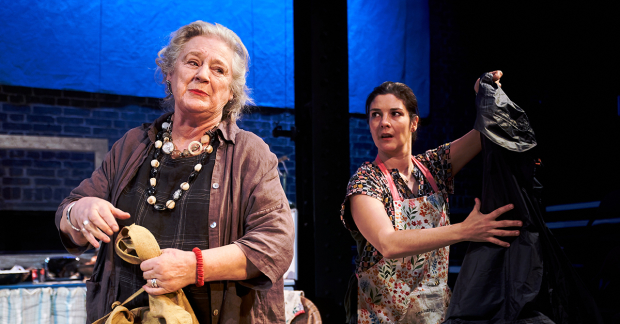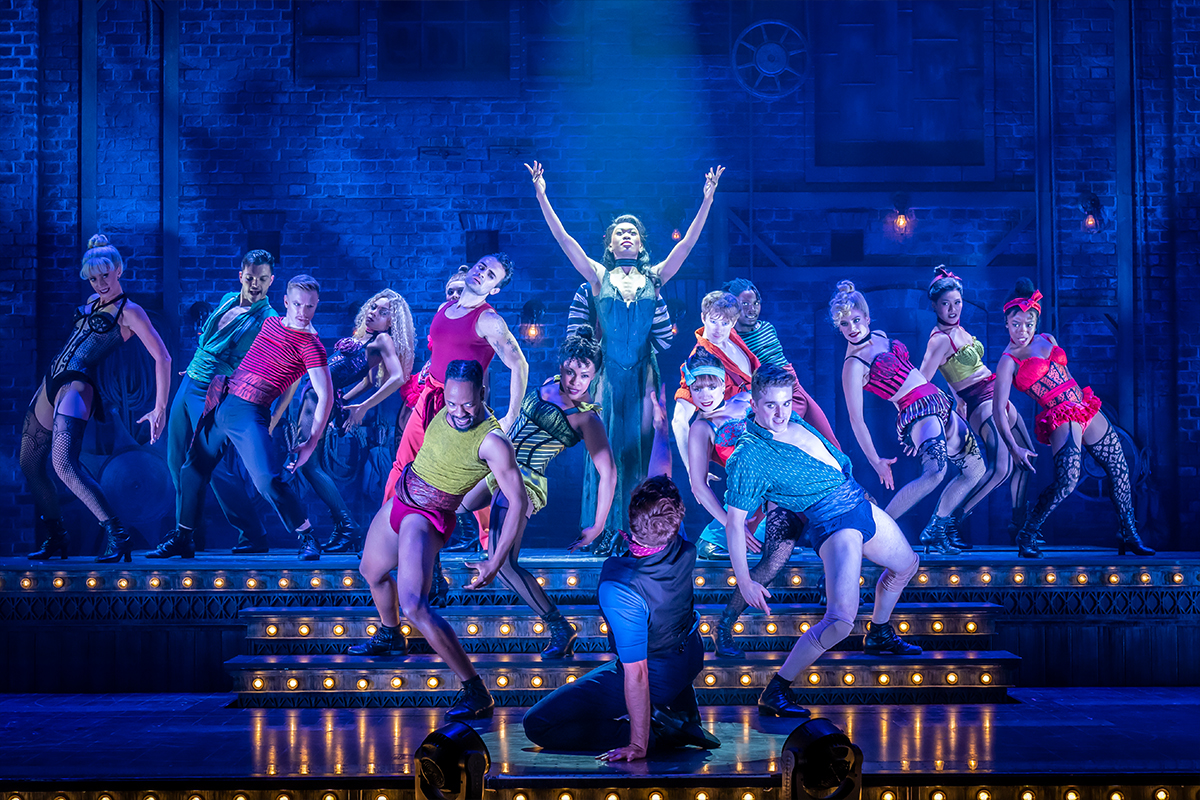Review: The Cutting Edge (Arcola Theatre)

© Alex Brenner
Jack Shepherd's new play focuses on ex-art critic couple Chris and Anna as they move from a bustling city life to one of hopeful self-sufficiency in a small village. There's no fridge, the couple kill animals for dinner themselves, and organic tomatoes are seen as much better than tinned. It's a lifestyle that feels like a goal, particularly with today's sharp focus on climate change, as Anna ensures that plastic bags (a symbol of where it all went wrong, according to her friend Peter) are never thrown out, but kept in a leather tote filled with other carrier bags – something most of us can probably relate to. Louie Whitemore's set feels quaint, a step back in time to an era when landline phones were the best way to contact someone. A few more steps back and Chris and Anna could find themselves in Laura Wade's Home, I'm Darling.
But the play is not really about the lifestyle the stressed, pretty much incompatible couple lead. Instead, it steadily rocks back and forth between an array of ideas. When Elvira (Maggie Steed, in a delightful turn), a pensioner with a penchant for a drink or five, arrives at the house to remember the times she vacationed there, Anna is shocked to learn that most of what she has been working on – specifically growing vegetables – may have been in vain, as the ground has never been good enough for it.
Like a predecessor to Absolutely Fabulous' Patsy, Steed's Elvira is certainly the most engaging character in the show. With sly quips aplenty, and her cheeky way of asking for another drink, she quietly digs up the ground that the couple have been working on for near seven years. Smart and hilarious in equal measure, side-eyeing the audience when she thinks differently, Steed's performance is a real joy to watch. When she leaves, along with her motorcycling companion Zak, Anna wonders if she is some kind of spirit of the house. Indeed the stage feels much emptier without Steed's presence.
Despite a strong start with this unexpected guest, it veers off into arguments about art criticism, modernism and more between ex-arts journalist (sorry, writer) Chris, close friend Peter and stranger Zak. It feels tenser than the stakes allow, with not enough time allowed for the fallout of the events to have an impact – they just happen and the couple go to bed at the end of the night (or beginning, it's barely 6pm). Peter's half-confession to Anna in an overly long second half that he is potentially in love with her falls a bit flat and is over within 30 seconds.
Billed as a tragicomedy, there are certainly plenty of laughs in Shepherd's play, but it sadly doesn't feel complete enough to be tragic – the sequel to these events may have been the more interesting thing to write about.










